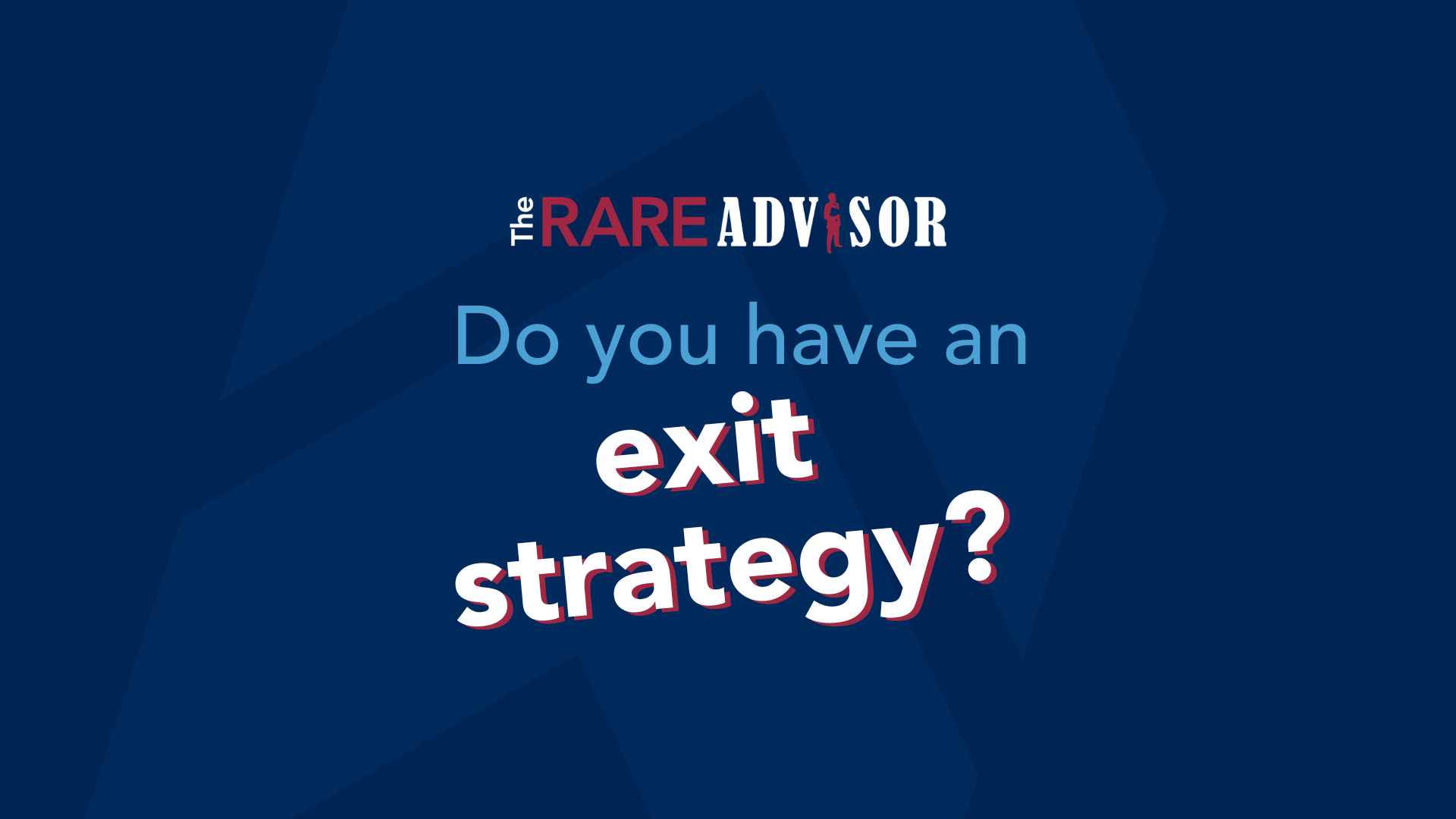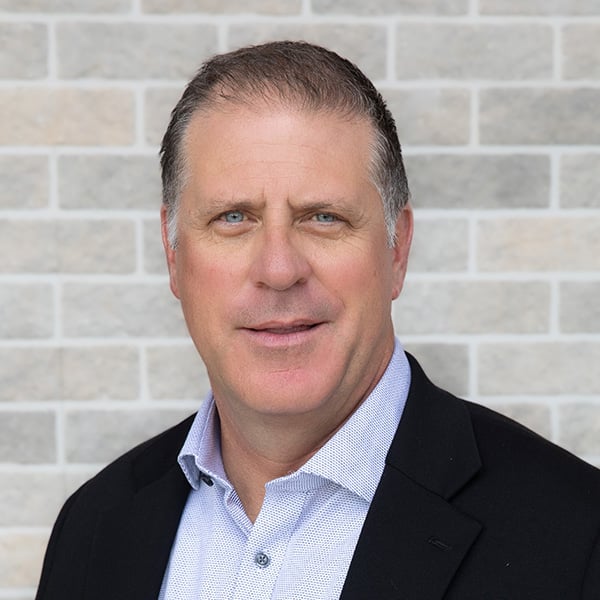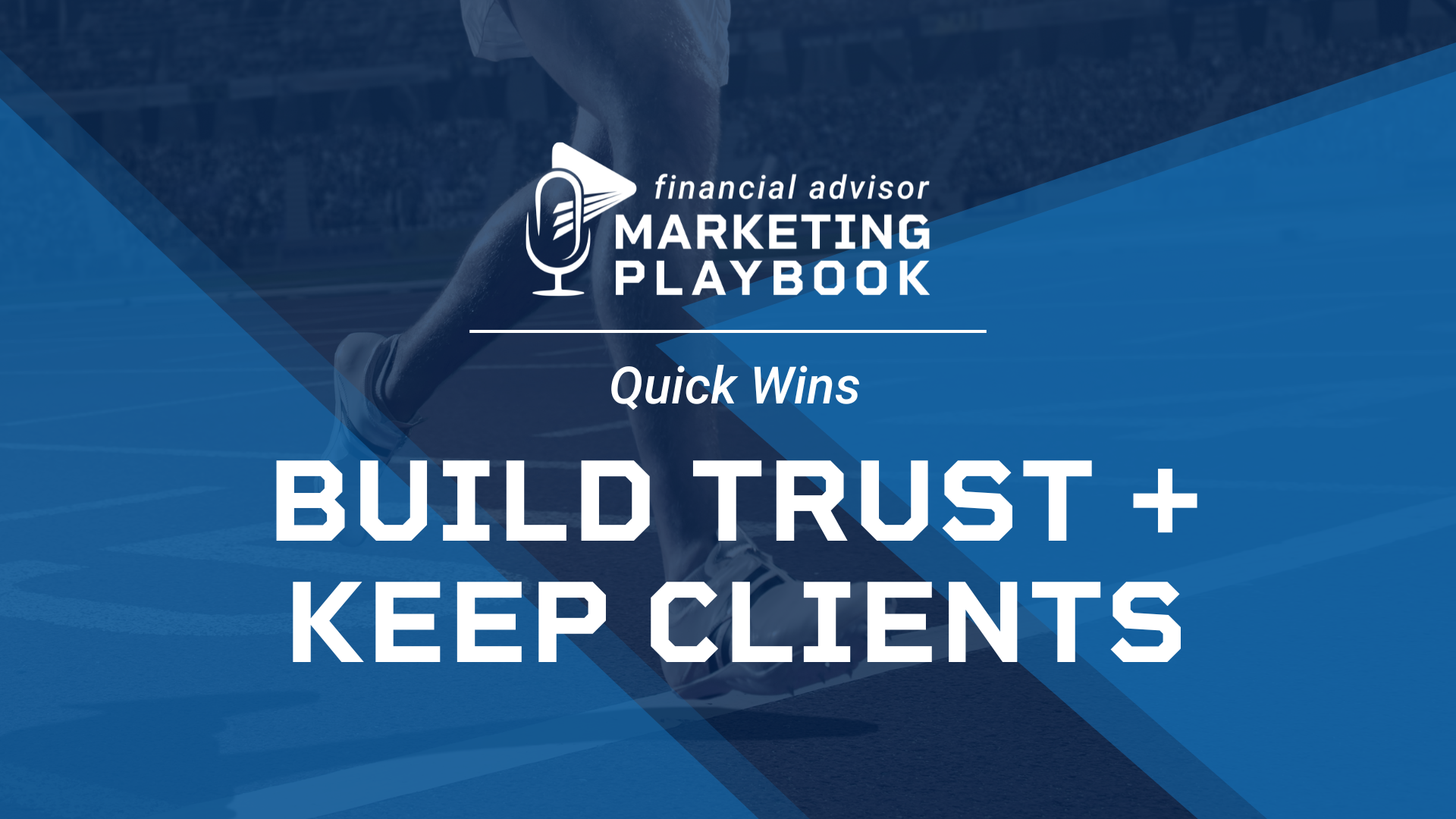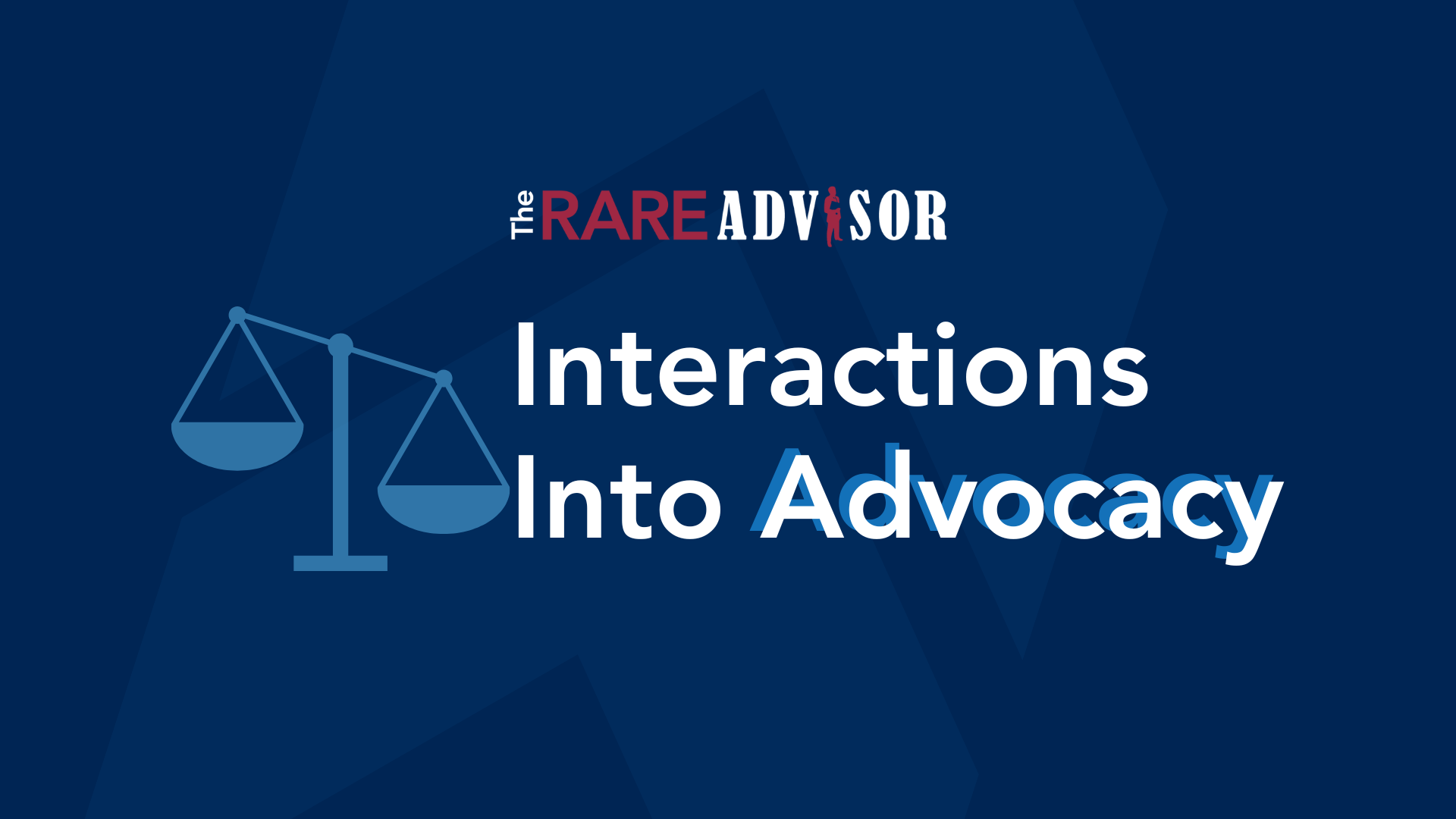The RARE Advisor: Who is there to buy when you wish to sell?

Can you count on a junior advisor to buy your practice from you when you retire? Do you have a relationship with a different advisor in the industry who wants to buy your practice the day you want to be done? Have you thought through what your finish line needs to look like at the end of your career? These are all important questions, and there’s a viewpoint out there today that is changing radically because of the average age of advisors.
Times are always changing. One could argue that since the pandemic, things have changed more rapidly than they have in say, the five years prior to the pandemic. This is also true not only in how you operate your practice, but how people view your practice in terms of what it's value is in the marketplace. What is it worth? And it's an important question because, most likely, your financial advisory practice is the most valuable asset that you own. It's probably worth more than your real estate, it's probably worth more than your various bank and investment accounts. It is where the bulk of your assets are housed. And ultimately, you're going to need to transition that into a more liquid asset in order to take care of your retirement and whatever other future plans you might hold.
So, it's important that you're asking yourself questions about how things are operating in the marketplace today. For example, if your practice is 100% geographically based, and it is entirely dependent on that geography, prior to the pandemic that probably wasn't a bad thing. In fact, many would probably argue it was a good thing if you had people geographically close to the office, and you're running in-office appointments and so on. But now today, the opposite argument can actually be made: your practice might be worth less if you haven't properly trained your clients how to operate and interact with you in terms of video conferencing (Zoom, Microsoft Teams, or whatever tool you prefer to use). It's important that customers and investors are comfortable and used to that. Now that doesn't mean you can't see them in person, but it means that it is always an option to not see them in person. Some clients prefer that, and a lot of advisors are taking that to heart and they're making it a choice in the relationship. Maybe you get together once a year in person, and then maybe you do some quarterly touches that are through video. Or maybe you don't get together at all in person. Maybe you always make it an option, but your first choice is to go to video. And then upon request, you'll do live appointments. People are doing this a number of different ways.
So why am I bringing this up? Because you need to change the thought pattern of how you've managed your practice. And there's a good chance most of you have done that. But I think this ties directly in to the fact that there are more advisors over the age of 65 in this industry than there are advisors under the age of 35. So if only about a quarter of advisors are under the age of 45, you have to start thinking about who's going to be making the acquisition. Who's going to be that next phase for you? Or, if you are relatively young and you're aggressively growing through acquisition or you're wanting to, then this is a powerful time for you. Now, you'll read in the media that there are more buyers than there are sellers. I will tell you, having coached and mentored and mediated and walked a number of advisors through the process of mergers and acquisitions, succession and transitions, that in my experience there are a lot of "wannabes". There are a lot of people who have some interest in it. But when the rubber hits the road, there is not an overwhelming number of people looking to purchase your practice. There's a lot of tire kickers, there's a lot of people who might knock on your door, but in terms of actually making it happen that falls by the wayside relatively quickly. And you probably know advisors who have had a hard time with this. Maybe they thought a junior advisor was going to take over and it just didn't pan out. Or maybe they thought their partner was going to be the solution for them. But then their partner wanted to be done at the same time they did, or they didn't want to physically buy them out. Or maybe they thought the advisor on the other side of town was their safety net. But now that advisor is not interested or maybe can't qualify for the financing, or who knows what else.
You want to think about the staging process. You're going to need some sort of a landing strip when it comes to your mergers, acquisitions, succession, and transitions. It's not like you just turn over the keys to someone - this is not a super quick process. So think ahead. Think about the design of your practice and whether or not it appeals to where the future is going. Does it appeal to a younger advisor, because it's likely going to be a younger advisor who would potentially buy you out someday? And are you grooming that process for the future - either through a junior advisor, someone in your practice, someone outside your practice, or maybe even a group/institution you rely upon to help you with that process?
USA Financial does that quite a bit these days. And all of these are things that we talk about at our Predictable Practice event that we run periodically. I would highly encourage you to think through the value of your practice. It's not just about the value today. It's about growth, what can you grow it into, and that is one of the things we dig deep on at the Predictable Practice. So, if this stuff is interesting to you, if you want to grow your practice, if you see a transition in your future at some point in time, then I would say it's it's a high likelihood you would want to attend our next workshop.
--
The RARE Advisor is a business model supercharged by Recurring And Repeatable Events. With more than thirty years of working with and coaching successful advisors, host Mike Walters (along with other leaders in the industry), discusses what it takes to grow a successful practice. With the aim of helping financial professionals and financial advisors take their business to the next level, Mike Walters shares insights and success stories that make a real impact. Regardless of the stage of your practice, The RARE Advisor will provide thoughtful guidance, suggestions for developing systems and processes that work, and ideas for creating an authentic experience for your clients.
The RARE Advisor is also a podcast! Subscribe today via Apple Podcasts, Google Podcasts, or your preferred podcast listening service for easier on-the-go listening.
Author Info

Mike Walters is the Chief Executive Officer (CEO) of USA Financial, leading the firm since its inception in 1988. Mike is committed to...
Related Posts

Ideal Life? It Starts with an Ideal Practice
Are you building a financial advisory practice that truly supports your ideal life—or is your business running you? In this episode of The Rare Advisor, host Aaron Grady sits down with Steve Phillips, Chief Practice Management Officer at USA Financial, to explore the four essential pillars of creating your ideal practice: ideal clients, ideal practice size, ideal strategic partners, and ideal affiliations. Whether you're a solo advisor or part of a growing team, this conversation dives into how to align your practice with your long-term goals and values. If you're navigating growth, considering a transition, or simply want more clarity on building a scalable, fulfilling advisory business, this episode is packed with practical insights you don’t want to miss.

How Financial Advisors Can Build Trust and Keep Clients
In this episode, Mark Mersman shares proven communication strategies for financial advisors to strengthen trust, improve client retention, and increase referrals. You'll discover four things your best clients likely believe—and why most clients leave not because of poor advice, but because of surprises or unclear expectations. Learn how to “future pace” your client relationships, clearly define your value, and proactively guide clients through life’s financial changes. If you're looking to grow your financial advisory practice and build long-lasting relationships, this video is a must-watch.

Turning Everyday Interactions Into Advocacy
In this episode Aaron Grady takes a deep dive into the concept of "moments of truth"—those pivotal life and financial events that offer powerful opportunities for advisors to deepen client relationships. Whether planned or unexpected, these moments allow you to go beyond money management and truly show up for your clients as a trusted partner in their life journey.

Ideal Life? It Starts with an Ideal Practice
Are you building a financial advisory practice that truly supports your ideal life—or is your business running you? In this episode of The Rare Advisor, host Aaron Grady sits down with Steve Phillips, Chief Practice Management Officer at USA Financial, to explore the four essential pillars of creating your ideal practice: ideal clients, ideal practice size, ideal strategic partners, and ideal affiliations. Whether you're a solo advisor or part of a growing team, this conversation dives into how to align your practice with your long-term goals and values. If you're navigating growth, considering a transition, or simply want more clarity on building a scalable, fulfilling advisory business, this episode is packed with practical insights you don’t want to miss.

How Financial Advisors Can Build Trust and Keep Clients
In this episode, Mark Mersman shares proven communication strategies for financial advisors to strengthen trust, improve client retention, and increase referrals. You'll discover four things your best clients likely believe—and why most clients leave not because of poor advice, but because of surprises or unclear expectations. Learn how to “future pace” your client relationships, clearly define your value, and proactively guide clients through life’s financial changes. If you're looking to grow your financial advisory practice and build long-lasting relationships, this video is a must-watch.

Turning Everyday Interactions Into Advocacy
In this episode Aaron Grady takes a deep dive into the concept of "moments of truth"—those pivotal life and financial events that offer powerful opportunities for advisors to deepen client relationships. Whether planned or unexpected, these moments allow you to go beyond money management and truly show up for your clients as a trusted partner in their life journey.

